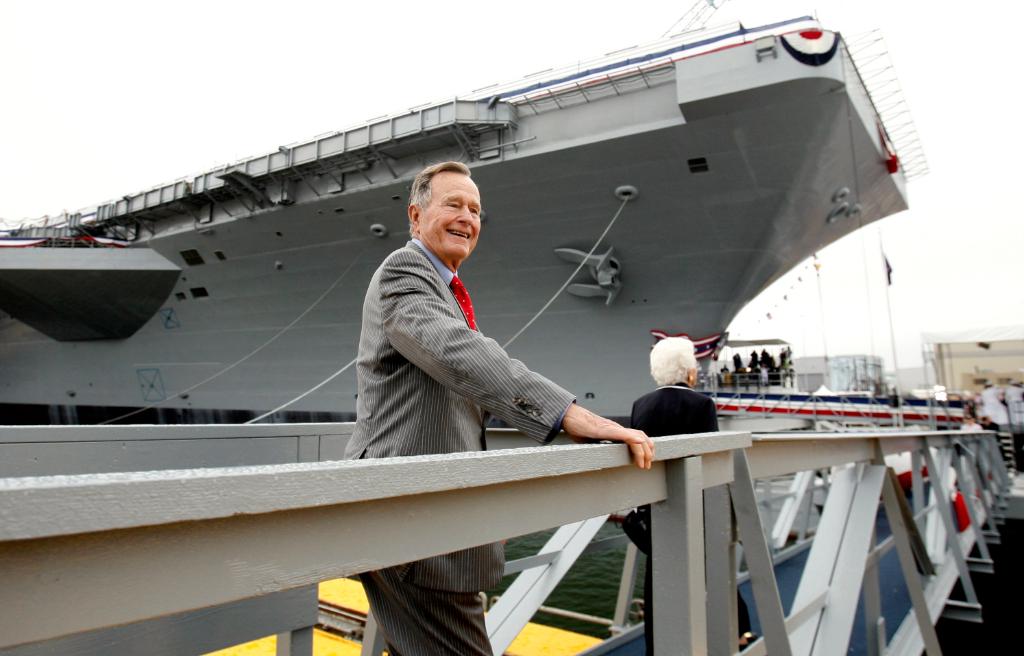
Former US President George H.W. Bush has died at age 94 in Houston, according to his spokesperson.
Born into privilege and a tradition of service, Bush was a son of a senator, celebrated World War II combat pilot, student athlete, Texas oilman, Republican congressman, national party chairman, pioneering diplomat and spy chief. After his own 1980 presidential campaign came up short, he served two terms as Ronald Reagan’s vice president before reaching the pinnacle of political power by winning the 1988 presidential election, soundly defeating Democrat Michael Dukakis.

After losing the White House in 1992, Bush became a widely admired political elder who leapt out of airplanes to mark birthday milestones. Emphasizing the generosity of his soul, he forged a close — and unlikely — friendship with Democrat Bill Clinton, the man who ended his presidency. When Parkinson’s disease mostly silenced him in public, Bush flashed his sense of humor by sporting colorful striped socks.

Bush, alongside national security adviser Brent Scowcroft and Secretary of State James Baker, engineered a soft landing for the Cold War as the Soviet empire shattered and Germany unified and then prospered — despite widespread distrust at the time of its history and motives.
In another dangerous foreign policy test, Bush decided in 1990 to build a diverse international coalition, including more than 400,000 US troops, to eject Iraqi forces from Kuwait.

“This will not stand. This will not stand, this aggression against Kuwait,” Bush vowed before getting to work on a successful mission that united US allies in Europe and the Middle East in a lightning war.
Later, with Iraqi forces routed, Bush decided not to push on to Baghdad to oust Saddam Hussein. That instinct later came to look prescient, given the blood and resources expended by the United States in his son’s own war against Iraq.
The 1990s Gulf War was the first time the world learned of the huge leaps in precision weaponry used by US forces and ushered in a brief era of unchallenged American hegemony after the dented confidence of the post-Vietnam war era.

Earlier, Bush had also ordered US troops to invade Panama after an off-duty Marine was killed by forces loyal to dictator Manuel Noriega. The force quickly overwhelmed Noriega’s men and he was overthrown in just four days and was later sentenced to 40 years in US federal prison on drug charges.
Bush also had to walk a fine line with China, imposing sanctions after a 1989 government crackdown on Tiananmen Square in Beijing, but also seeking to prevent a permanent rupture in relations. Also on his watch, Washington backed early diplomacy between Israel and the Palestinians, which led to the Oslo accords in the Clinton presidency.
What do you remember George H W Bush for?